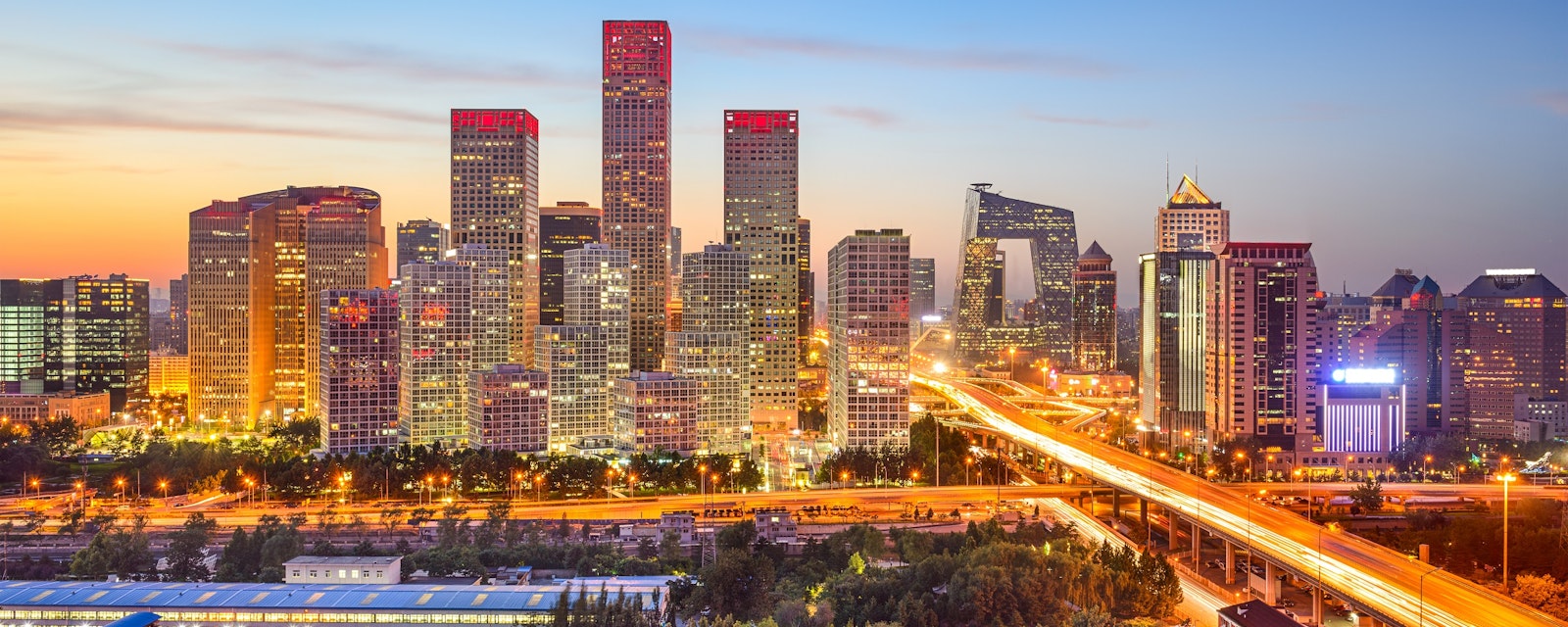US Secretary of State Anthony Blinken's two-day trip to Beijing was a success, at least based on the low expectations surrounding it.
Both sides demonstrated their desire to stabilize bilateral relations and resume the trajectory towards bilateral rapprochement that was interrupted by February's balloon incident. US-China relations may now enter a period of short-term improvement ahead of Chinese President Xi Jinping's likely visit to San Francisco for the APEC summit in November.
Secretary Blinken met Foreign Minster Qin Gang and top Communist Party foreign policy official Wang Yi for three and five hours, respectively, on 18 June before meeting President Xi Jinping for 35 minutes the following day. Xi's decision to meet Blinken suggests that despite calculated snubs by senior Chinese leaders in response to US requests for contacts in recent months, Xi still sees value in high-level interactions. Indeed, amid the fallout from February's balloon incident, which caused Blinken to cancel a pending Beijing trip, we forecast that such a visit was still likely by mid-year.
In the coming weeks, Treasury Secretary Janet Yellen and Commerce Secretary Gina Raimondo will likely also visit Beijing, and Qin will visit Washington. The two sides' readouts used identical language in pledging to "continue discussions on developing principles to guide the bilateral relationship," as Xi and US President Joe Biden agreed in Bali in November. This language signals that the two governments want to move beyond the rancor that followed February's balloon incident and resume the trajectory towards rapprochement that began with the Bali meeting.
The US readout mentions specific areas of potential cooperation, including climate change, global macroeconomic stability, food security, public health, and fentanyl. The Chinese readouts do not name specific issues for cooperation but echo the US readout's call to encourage further people-to-people exchanges between students, scholars, and business personnel. Both readouts also include familiar recitations of grievances, but the overall tone was less hostile than in previous official statements.
Positive Short-Term Outlook
Absent another unexpected incident, US-China relations may now enter a period of short-term improvement. We believe Xi has incentives to seek an improvement ahead of the APEC leaders summit in San Francisco in November. As the leader of Asia's largest economy, Xi has little choice but to travel for the meeting; having done so, he will likely wish to return with an achievement — presumably a confidence-inducing meeting with Biden.
In terms of specific policies, the bilateral relationship is also in a less disastrous state than might have been expected at the end of last year. National Security Advisor Jake Sullivan's speech in September 2022 declared that high-powered computing, biotech, and clean energy were "force multiplier" technologies where US national security required maintaining "as large of a lead as possible" over competitors like China. This statement was widely interpreted as a signal that Washington would soon impose significant export controls in each of these three areas. Since then, however, only advanced semiconductors have been subjected to such controls, while biotech and clean energy appear safe for the time being. A ban on TikTok or a forced divestment also seemed highly likely earlier this year, but that risk has faded, too.
By early 2024, however, the cyclical improvement in bilateral relations may end as the US presidential campaign kicks into gear. Republican candidates will attack Biden for appeasing China, while vying with each other for the "tough on China" crown. Such criticism already emerged in the lead-up to Blinken's visit, with House Select Committee on China Chairman Mike Gallagher and House Foreign Affairs Committee Chairman Michael McCaul denouncing the trip as a sign of weakness. This messaging will escalate further beginning with the first Republican presidential primary debate scheduled for late August. As the 2024 elections approach, Congress may take a symbolic vote on banning TikTok. Upcoming visits to China by Yellen and Raimondo may also expose the Biden administration to criticism that the US is appearing as a supplicant, unless a senior Chinese official first travels to Washington.
Low Expectations
After Biden predicted a bilateral "thaw" last month, we analyzed what that might look like. As discussed, even in an optimistic scenario for such a thaw, fundamental tensions will remain unresolved. The success of Blinken's latest visit — and the likelihood of a modest thaw in the coming months — largely reflects the generally low expectations for the bilateral relationship.
Even so, simply reassuring foreign investors that bilateral relations are no longer in freefall could reduce pressure on foreign executives to decouple from China. For example, the two sides agreed to "explore" setting up a working group on fentanyl. If such a mechanism were formally established, this would be viewed as a sign that the two sides retain some willingness to cooperate, even if the working group achieved little of substance. Increasing weekly flights between the two countries or the quotas for journalist visas would send a similar signal.
On military-to-military contacts and crisis communication channels, the outlook remains dim. Blinken said he raised the issue with his interlocutors but that "China has not agreed to move forward." As previously discussed, Beijing views the concept of "guardrails" as effectively enabling Washington to engage in ongoing provocations with impunity.
For Beijing to agree to high-level military-to-military contacts, China's leadership would likely expect a gesture from Washington that acknowledges Beijing's concerns about the apparent hollowing out of the One China Policy. Such a gesture might include reducing US military sail-throughs and flyovers around the Taiwan Strait and dialing back other forms of diplomatic and military support for the island. In principle, the Biden administration could make such gestures without public announcement to minimize domestic political blowback, but for now we see little sign of such an intention. Moreover, given the intense focus on China in US political discourse, even low-key gestures would not remain unnoticed for long.




